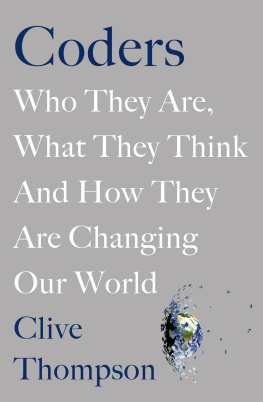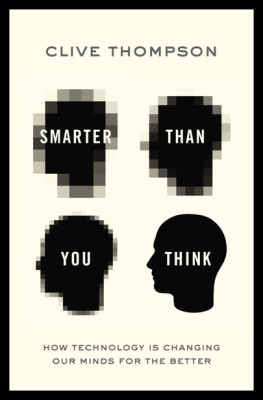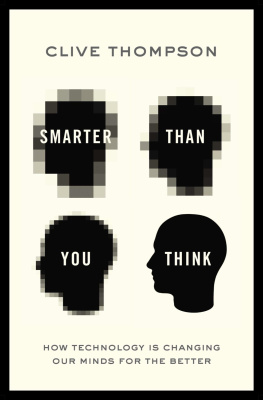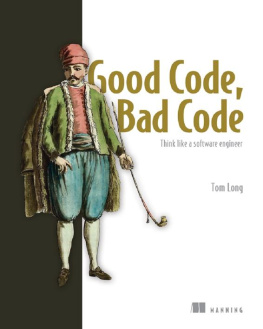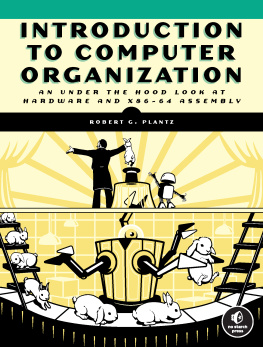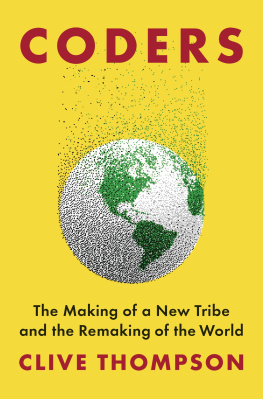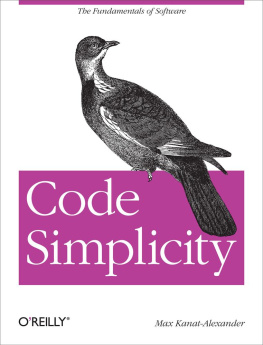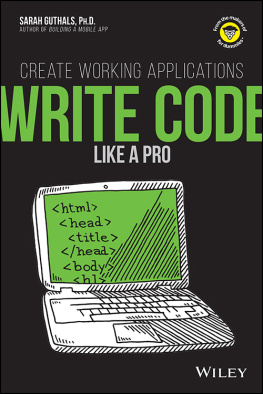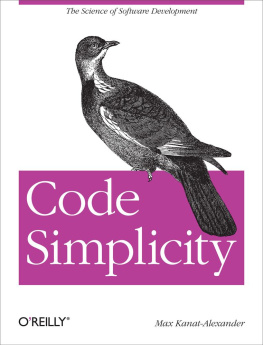C o d e r s
< Who They Are, What They Think
and How They Are Changing
Our World >
C l i v e T h o m p s o n

To Emily, Gabriel, Zev, and my mother
C o n t e n t s
< Chapter 1 >
The Software Update That Changed Reality
I n the early hours of September 5, 2006, Ruchi Sanghvi rewrote the world with a single software update.
A round-faced, outspoken programmer, Sanghvi was 23 years old when she arrived to work at Facebook. Raised in India, she had long dreamed of growing up to work for her fathers company, which lent heavy machinery for the construction of ports, oil refineries, and windmills. But while studying at Carnegie Mellon University, she got intrigued by computer engineering, and then she fell in love with it. It was like constantly solving puzzles: trying to make an algorithm run faster, trying to debug a gnarly piece of code that wasnt working right. The mental chess colonized her mind, and she found herself pondering coding problems all day long. Youre at it for hours, youre not eating, youre not sleeping; its like you cant stop thinking about it, she tells me.
Sanghvi was, by programming standards, a late bloomer; she was studying alongside kids, nearly all male, whod been coding since they were nine and playing video games, and they seemed to effortlessly get it. But she kept grinding away, got good grades, then graduated and got hired for her first job in Manhattan, doing math modeling for a derivatives trading desk.
When she arrived in New York, though, she was horrified by the sight of the gray cubicles at the workplace. She wouldnt be having much of an impact on the world here. She didnt want to be a cog in a machine, writing code to support finance work; she hungered to work for a company where the technology itself was the core product, where computer scientists were the main players. She wanted to actually make a product that people usedsomething tangible, useful. She wanted to do something like Facebook, a site that shed joined in her last year of college. Now that was an addictive bit of software. Shed log in all the time to stay in touch with college friends whod recently graduated, checking their pages to see if theyd updated anything.
So Sanghvi bailed on Manhattan, quitting the job even before her first day. She fled to San Francisco, where she got a job at Oracle, the database company. And then, one day a college friend invited her to come by the offices of Facebook itself.
It was a tiny firm, serving only college students; everyday folks werent yet allowed to use Facebook. When she walked up to the office on the second floor above a Chinese-food restaurant, she found a passel of mostly young white men, some whod recently bailed on Harvard: a 21-year-old Mark Zuckerberg walking around in nearly wrecked sandals, Adam DAngelo (the guy whod taught a younger Zuckerberg some coding), and Dustin Moskovitz, Zuckerbergs roommate at Harvard. They worked in a haze of intensity, laptops open on cluttered desks, while playing video games at their nearby dorm-like crash-pad houses, or even while sunning on the roof of the Facebook office. The graffiti artist David Choe was hired around that time to bedeck the walls with murals, one of which depicted a huge buxom woman with enormous breasts wearing this Mad Maxstyle costume riding a bull dog (as early employee Ezra Callahan described it).
They were aggressive about tweaking and changing Facebook, regularly pushing new code out to users that would create features like Facebooks famous Poke, or a Notes app that let people write longer posts. They were daredevils; sometimes a new feature would have been written so eagerly and hastily that it produced unexpected side effects, which they wouldnt discover until, whoops, the code was live on the site. So theyd push the code out at midnight and then hold their breath to see whether it crashed Facebook or not. If everything worked, theyd leave; if it caused a catastrophe, theyd frantically try to fix it, often toiling until the early morning, or sometimes just reverting back to the old code when they simply couldnt get the new feature working . As Zuckerbergs oft-quoted motto went, Move fast and break things .
Sanghvi loved it. It was different, it was vibrant, it was alive, she says. People there were like humming along, everyone was really busy, everyone was really into what they were doing... the energy was just so tangible. And as it turns out, Facebook was desperately seeking more coders. Its hard to imagine now, with the company being such a globe-spanning behemoth, but back in 2005 they had trouble attracting anyone to work there. Most experienced software engineers in Silicon Valley thought Facebook was a fad, one of those bits of web ephemera that enjoys a brief and delirious vogue before becoming unspeakably pass. They had no interest in working there. So Sanghvi arrived in a lucky window of opportunity: young enough to have used Facebook and known how addictive it was, but old enough to have actually graduated college and be looking for a coding job. They hired her a week after her visit, as the companys first female software engineer.
Soon, she was given a weighty task. Zuckerberg and the other founders had decided that Facebook was too slow and difficult to use. Back in those early days, the only way to know what your friend was doing was to go look at their Facebook page. It required a lot of active forethought. If someone posted a juicy bit of infoa newly ended relationship, a morsel of gossip, a racy profile photoyou might not see it if you forgot to check their page that day. Facebook was, in effect, like living in an apartment building where you had to keep poking your nose in peoples doors to see what was up.
Zuckerberg wanted to streamline things. Hed been carrying around a notebook in which hed sketched a vision (in his tiny, precise handwriting) for a News Feed. When you logged in, the feed would be a single page that listed things friends had posted since you last logged in. Itd be like a form of ESP for your social life. As soon as someone posted an updatePing!it would arrive on the periphery of your vision. The News Feed wouldnt be just a slight cosmetic tweak to Facebook, like a pretty new font or color. It would reconstruct how people paid attention to one another.
And now Sanghvi had to make the News Feed happen. She set to work with a small pod of collaborators, including Chris Cox, Matt Cahill, Kang-Xing Jin (known as KX), and Andrew Boz Bosworth, Zuckerbergs former teaching assistant at Harvard. For nine months they worked intensely, batting ideas around and then clattering away writing code, while Cox blasted James Brown or Johnny Cash from his laptop. Like the other coders, Sanghvi began programming almost around the clock, staying at Facebook until dawn and then staggering home to San Francisco; after nearly crashing her car from lack of sleep, she moved to a house near Facebooks office, from which shed sometimes wander to work in her pajamas. Nobody minded. All the coders blended socializing and working, playing poker or video games at work; during a video interview in 2005, Zuckerberg chatted while toting a red-cupped beer, and an employee did a keg stand .

